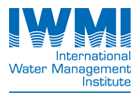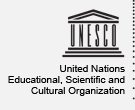Presentations 2016
Möller, Gregory
Presentation Title
N-E-W Tech™: Advancing the Agricultural Circular Economy at the Nutrient-Energy-Water Nexus with Technology Innovation
Institution
University of Idaho
Video
Video Not Available
Presentation
Profile Picture

Abstract
Water sustainability is the most critical challenge to the future of agriculture. Concomitant with the challenges of a changing climate, new ground and surface water quality directives, and increasing water competition and food demand from a growing population, agriculture will certainly need to adapt to change in the waterscape of the future. N-E-W Tech™ is an innovative water treatment process at the nutrient, energy, and water nexus. N-E-W Tech™ integrates reactive filtration with iron-functionalized biochar and ozone for catalytic oxidation water treatment, sterilizing reclaimed water, and producing a value-added nutrient upcycled, Enhanced Efficiency Fertilizer (EEF) product that addresses the need for carbon sequestration, rhizosphere nutrient and moisture stability and soil tilth. Our membrane-free approach addresses the negative aspects of several current alternative technologies to water reuse and recycling including their high energy inputs, removal but not destruction of contaminants and pathogens, high capital-maintenance-operations costs, and their poorer sustainability footprint. In this work we report on the design-build, water treatment performance, energy efficiency and general operations of this technology built as a 15 gpm pilot process on a mobile trailer. Recognized as one of twenty-five innovations that changed the world, reactive filtration is our commercialized, high efficiency nutrient removal process installed at 10+ MGD at water treatment plants; it uses an iron oxyhydroxide adsorptive process in a moving sand bed filter. In N-E-W Tech™ we demonstrate the addition and recovery of 1 to 10 grams of micronized iron-functionalized biochar per gallon, using this substrate as a sorbent and as a sacrificial catalyst with ozone to form hydroxyl radicals. Oxidizing potentials ranging from 1100 to 1300+ mV are maintained in the reactor during the 10-15 minute process time. Nutrients selectively adsorb to the recovered functionalized biochar demonstrating fertilizer potential in this carbon sequestering substrate. Initial N-E-W Tech™ effluent results from municipal secondary water demonstrate turbidity <0.5 NTU, 3+ log removal of microbial pathogens, total P <10 ppb and other promising results that indicate a positive future for the use of degraded water resources for the agricultural circular economy.
|












